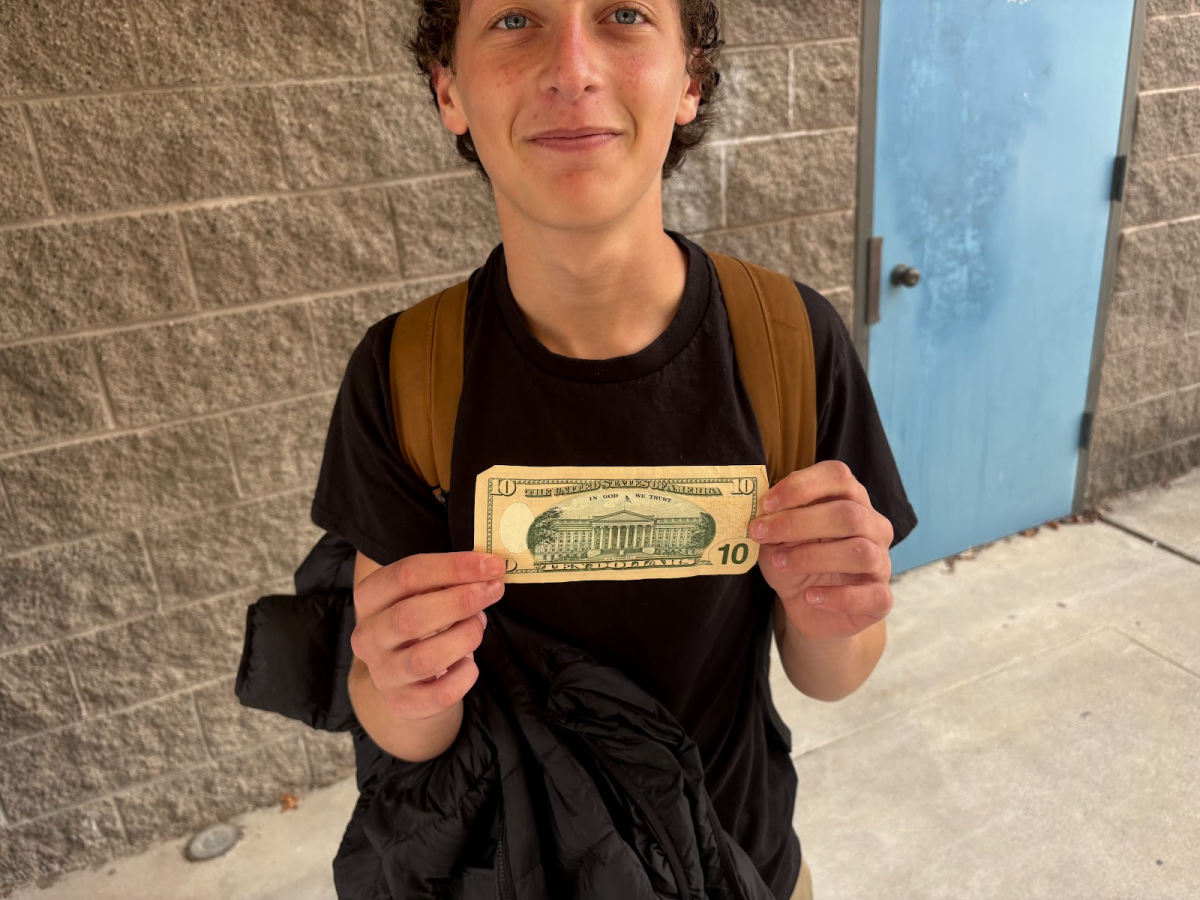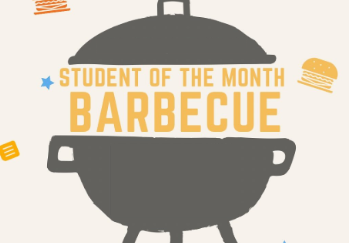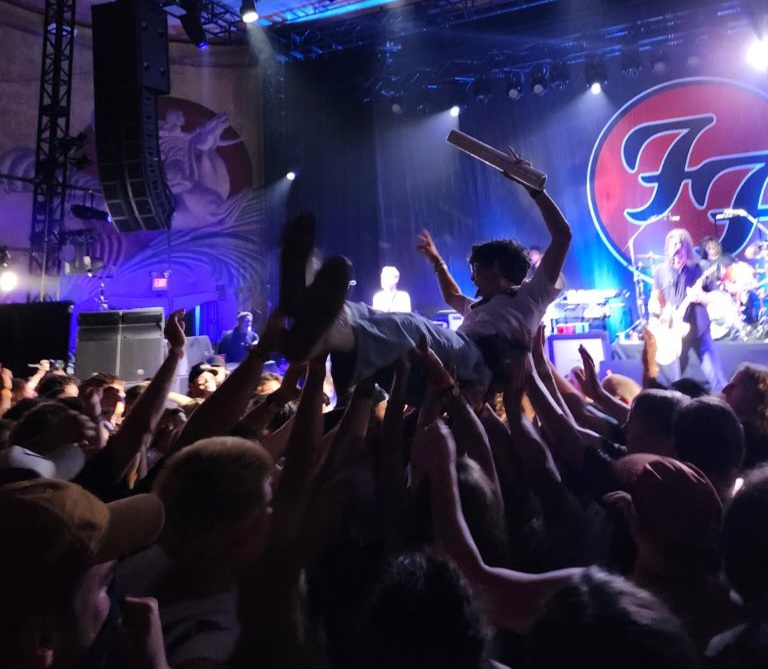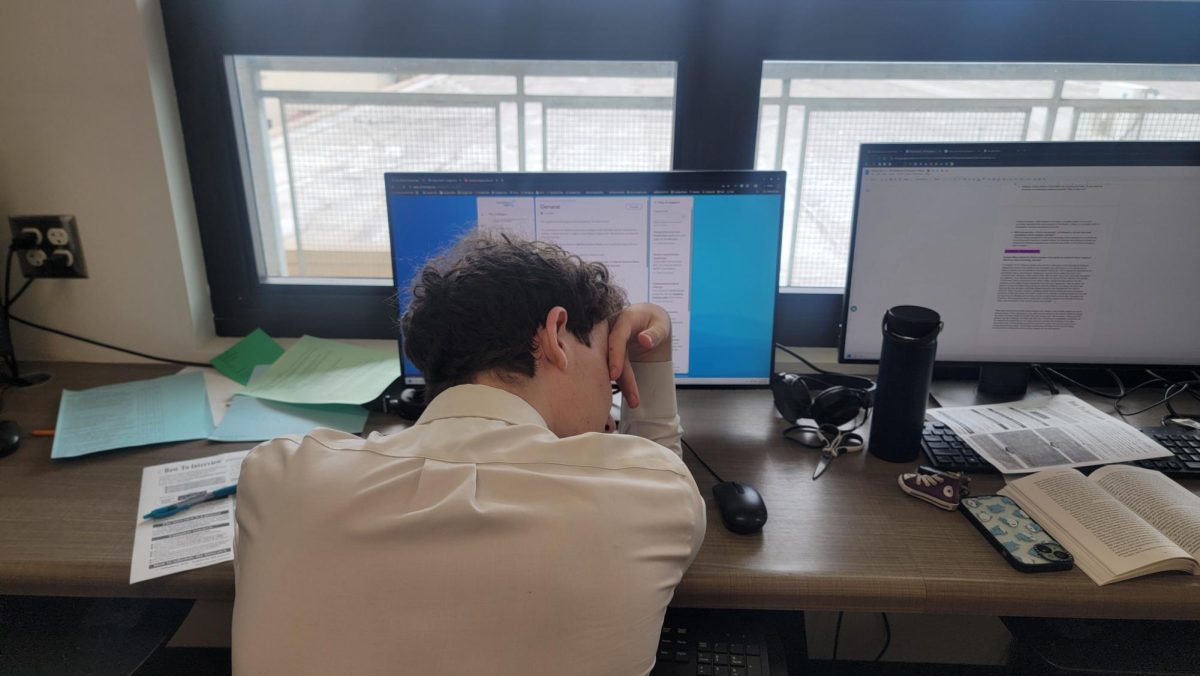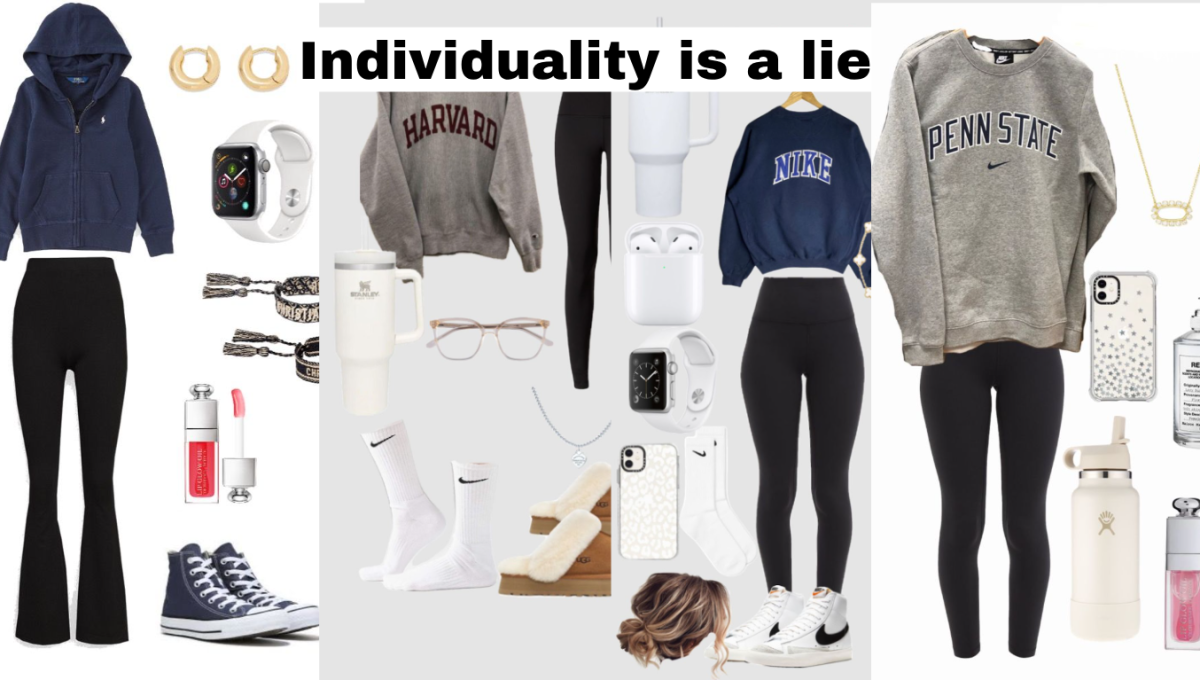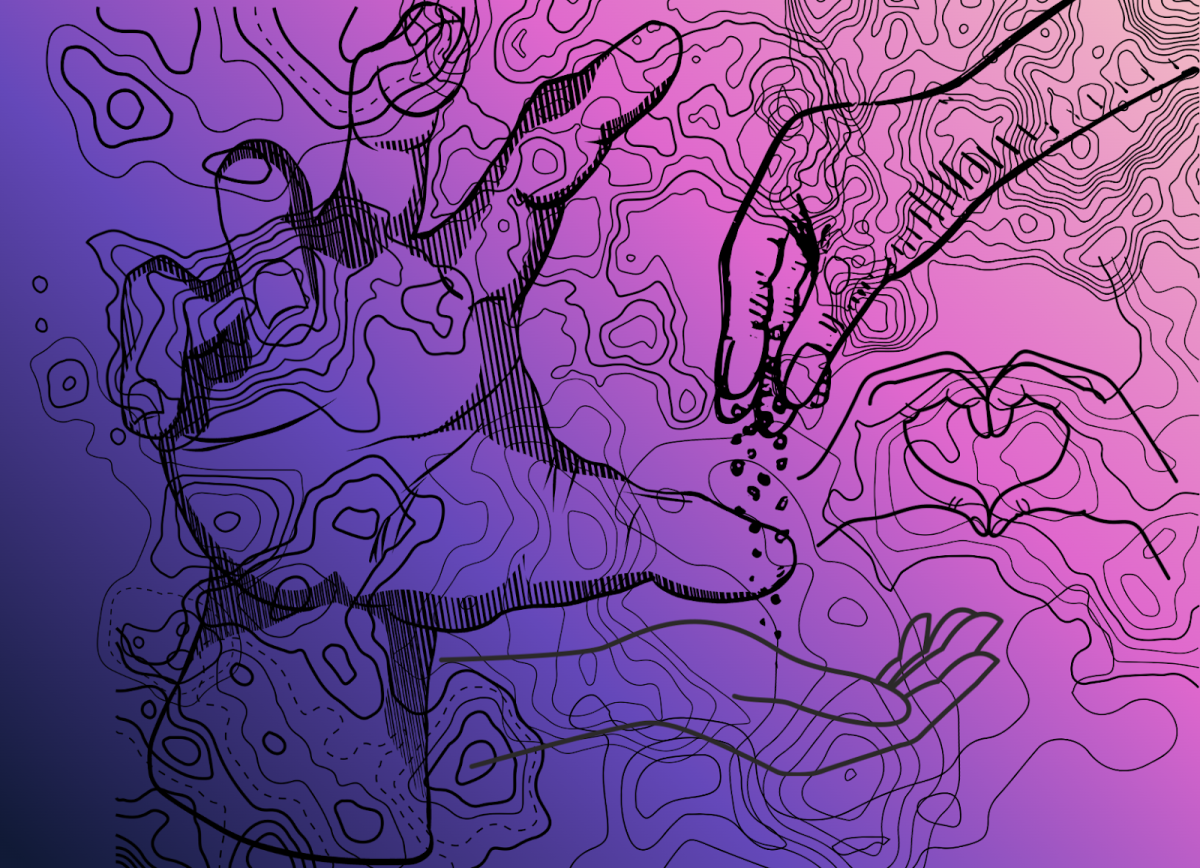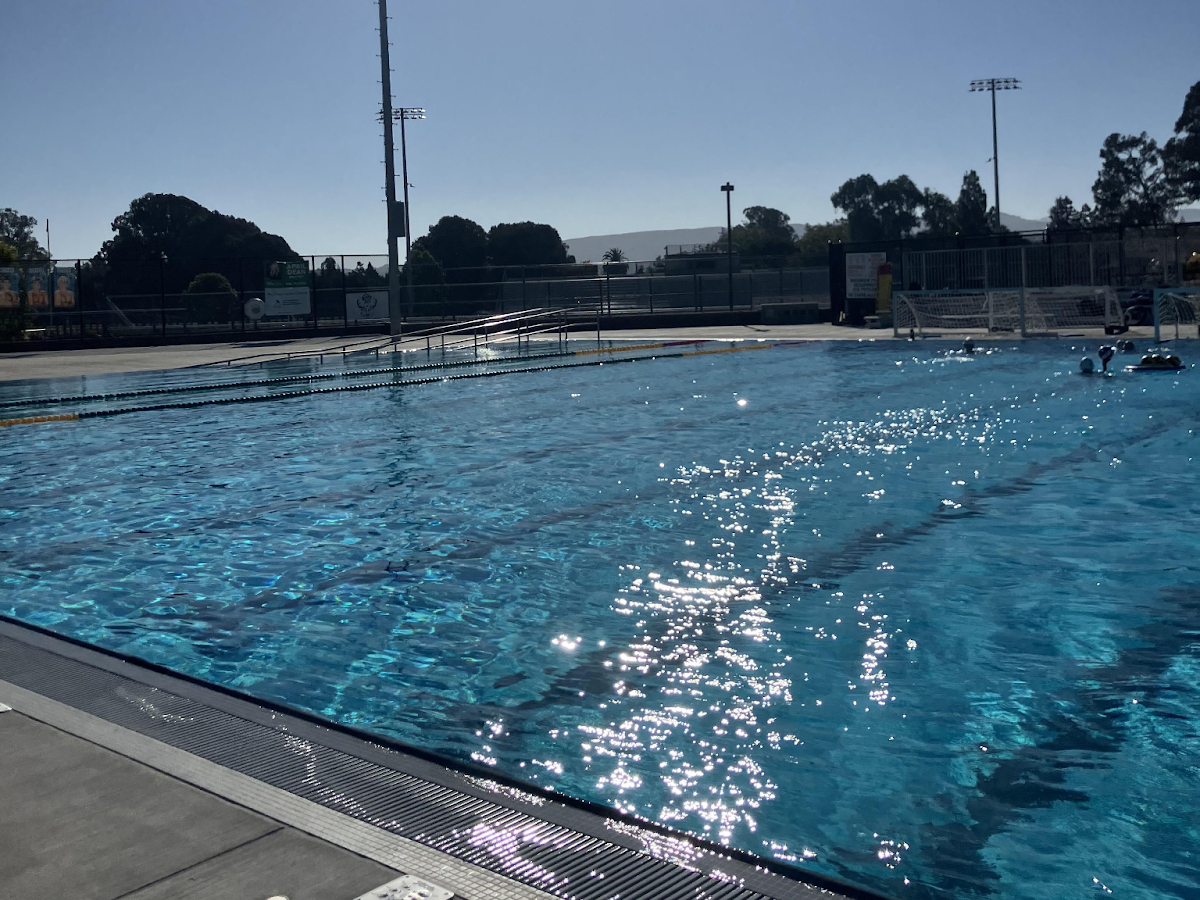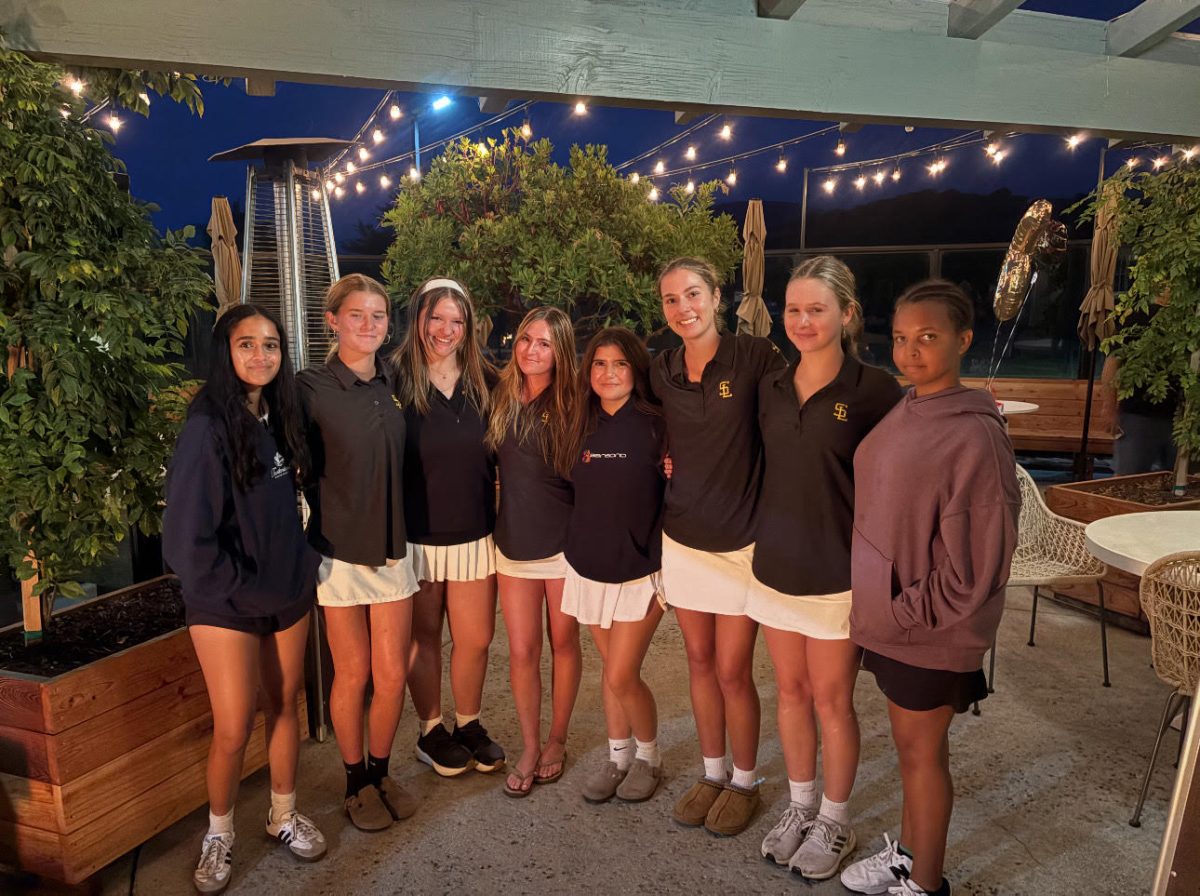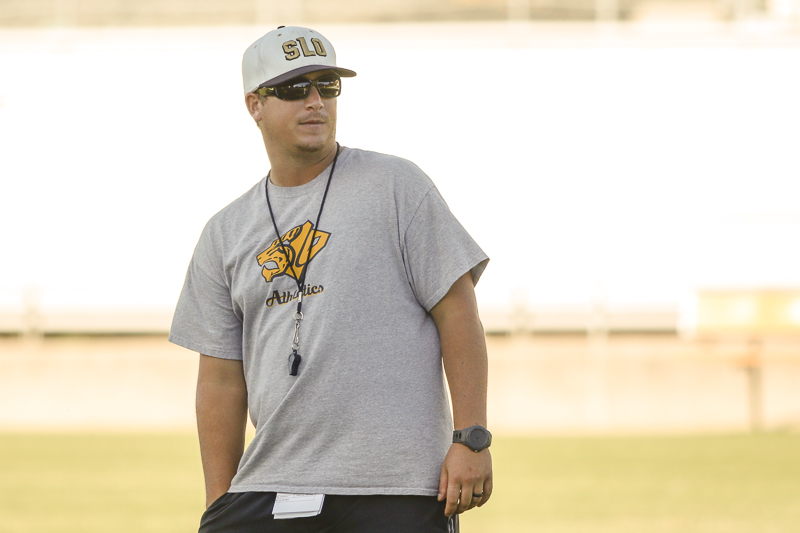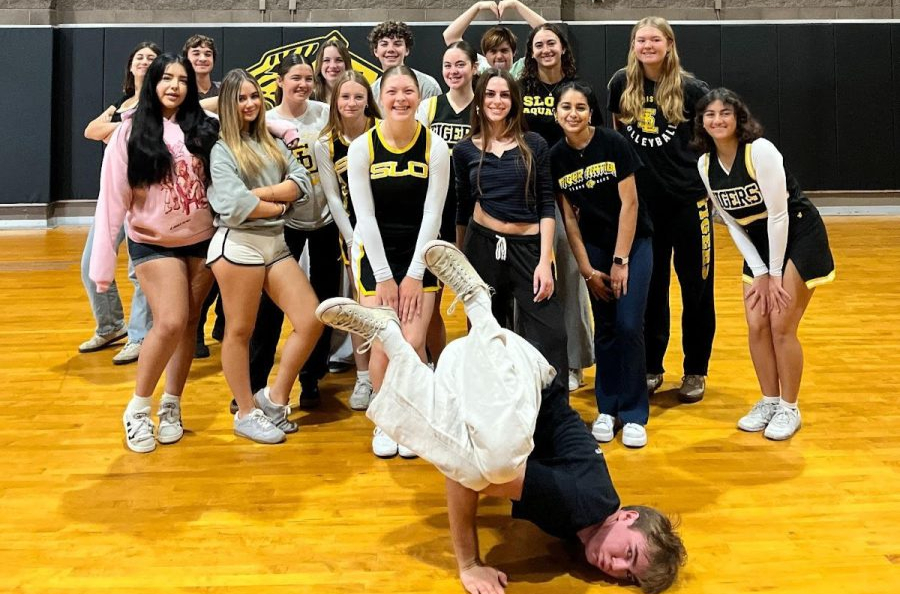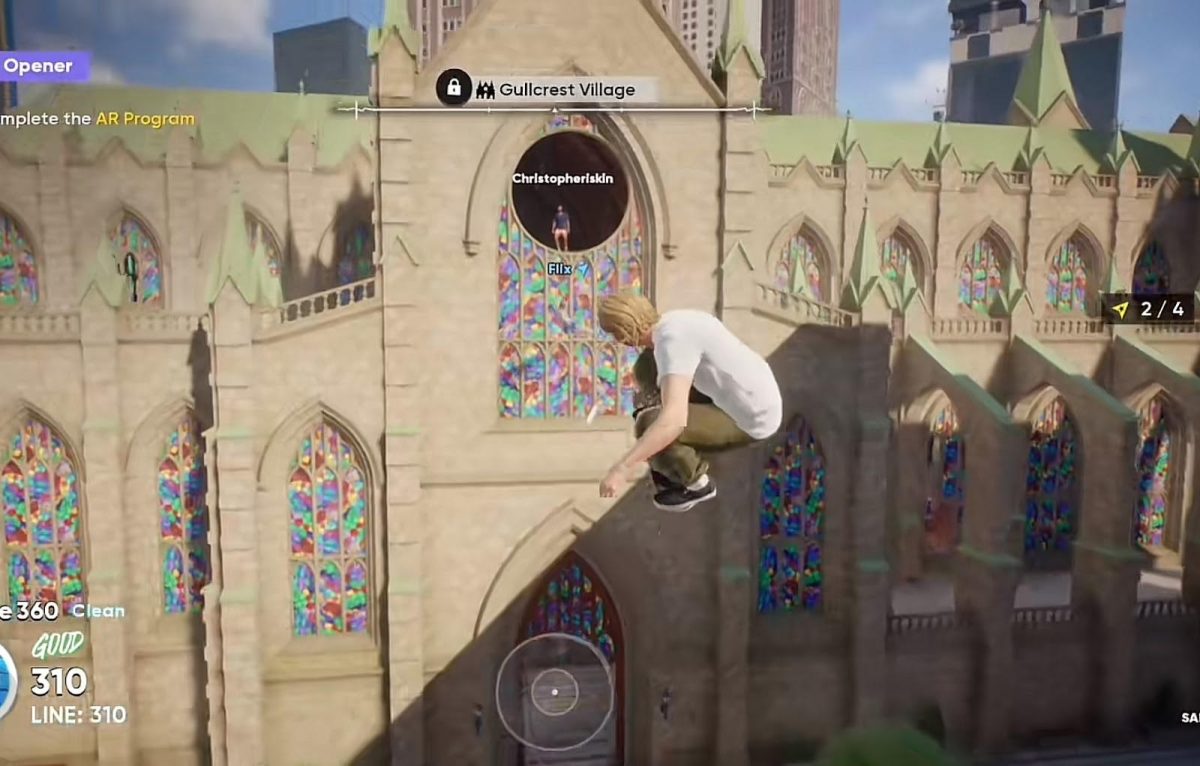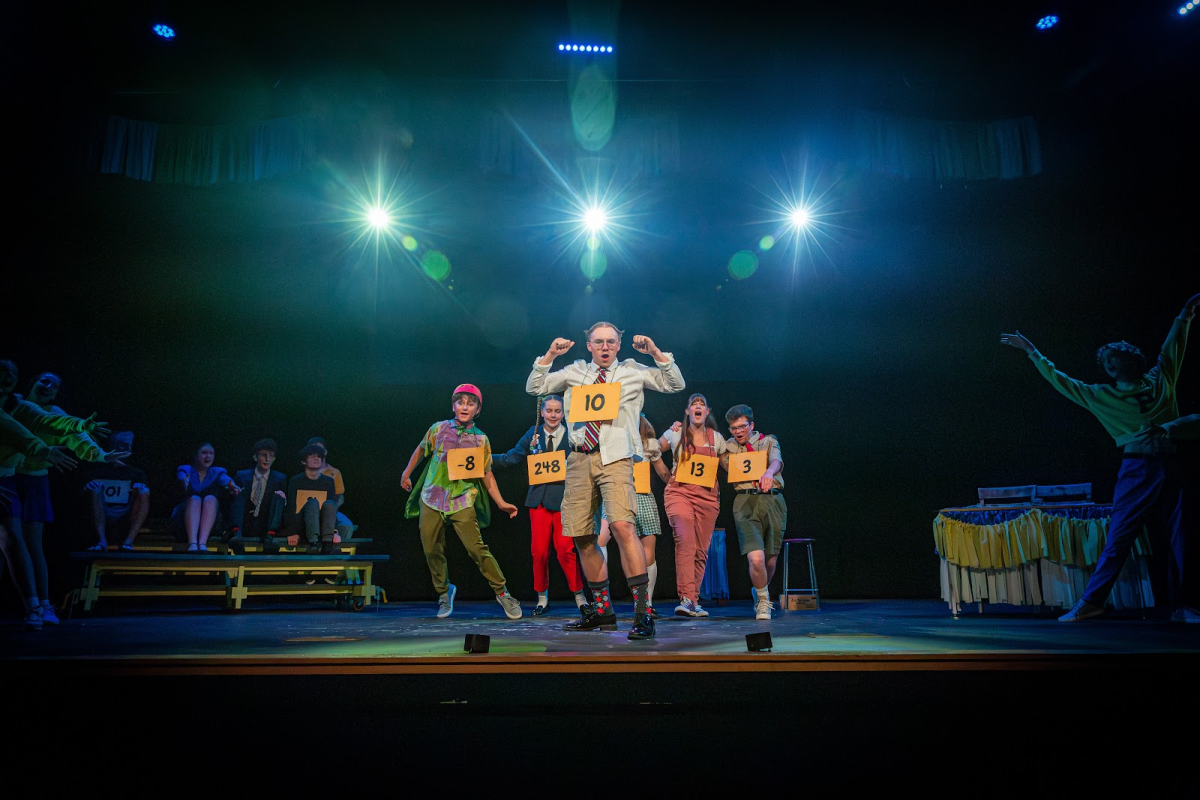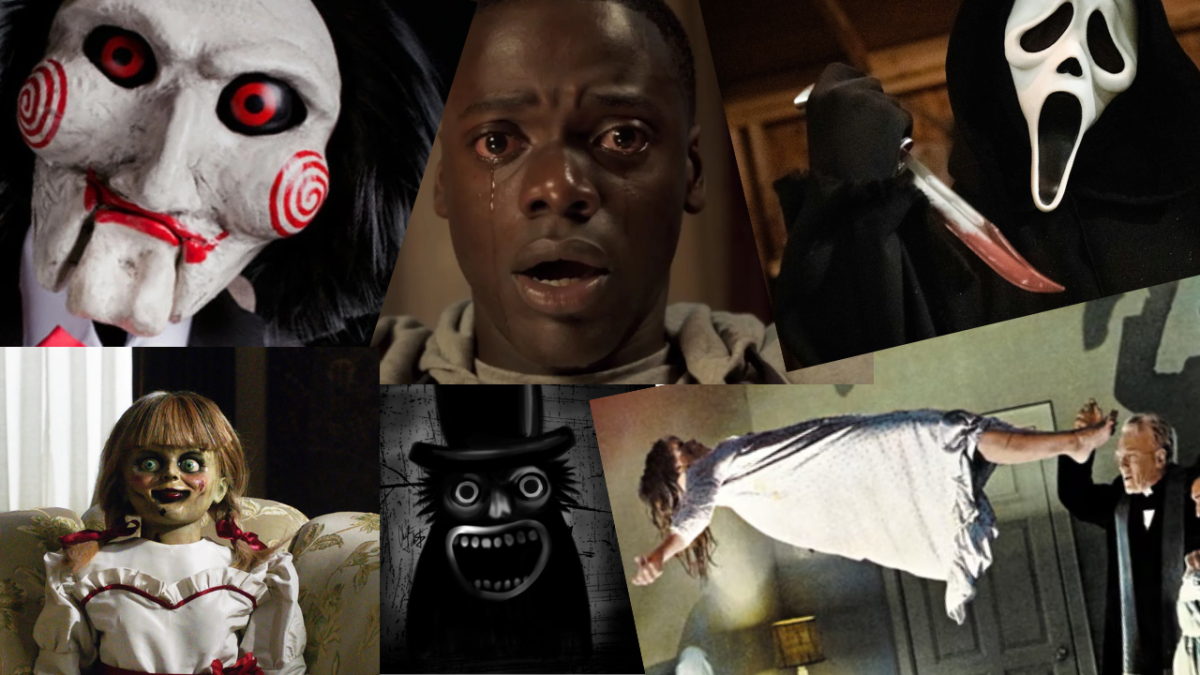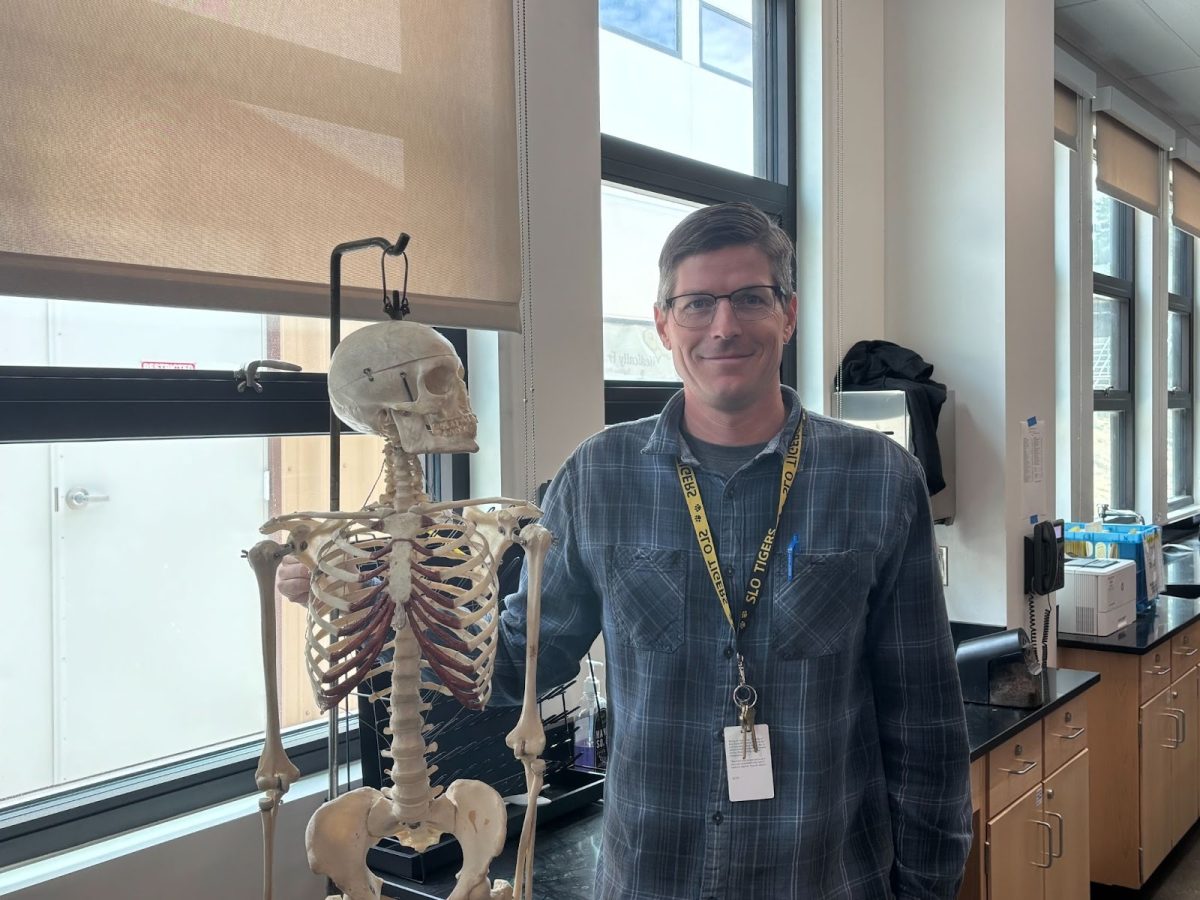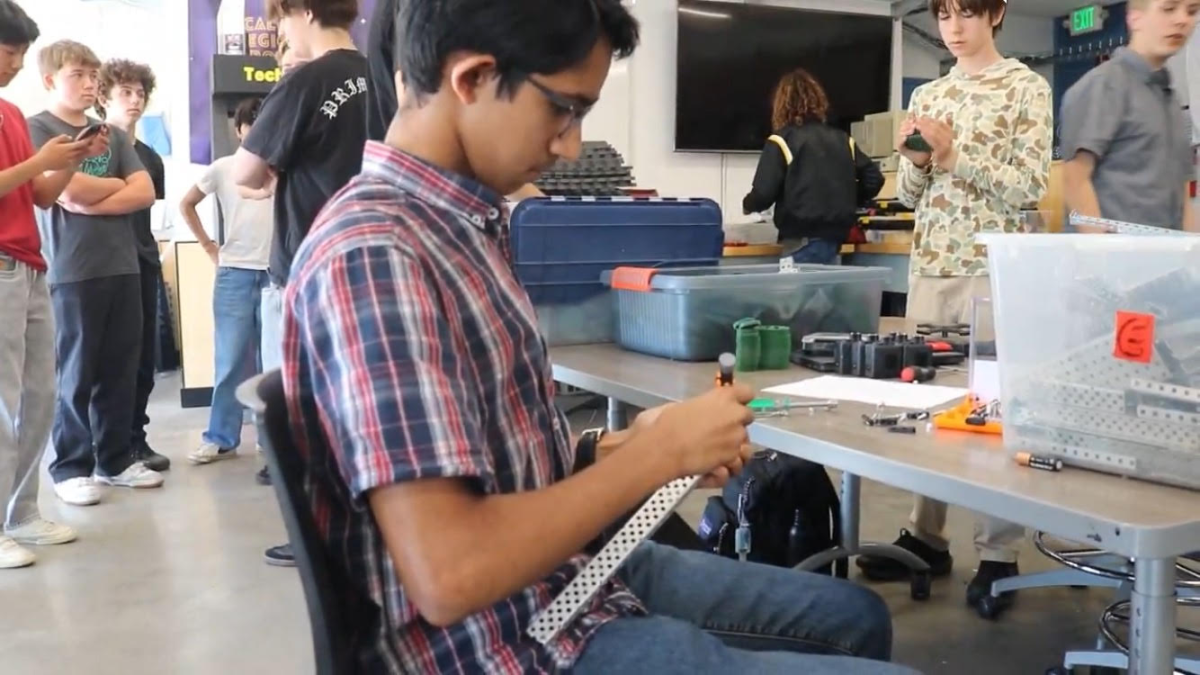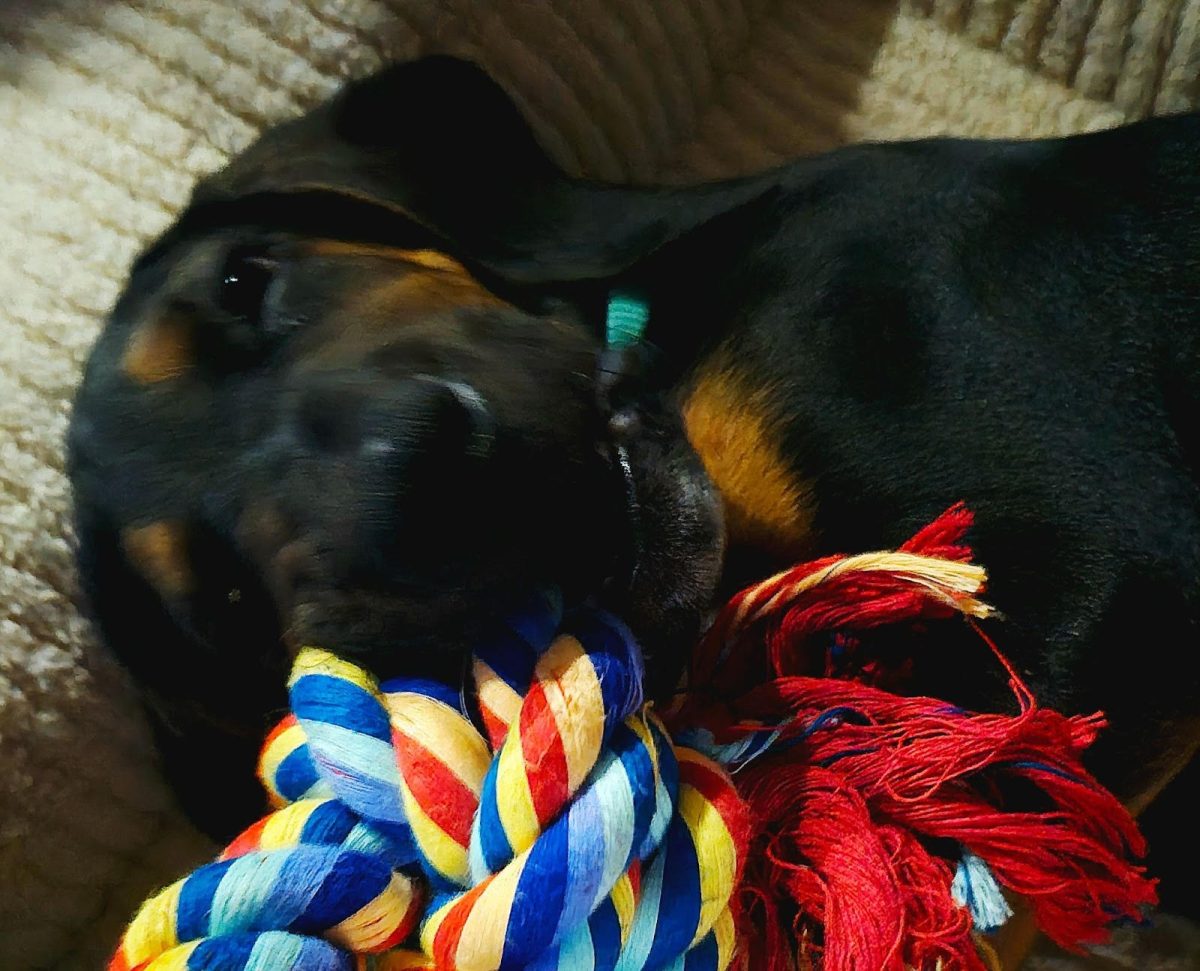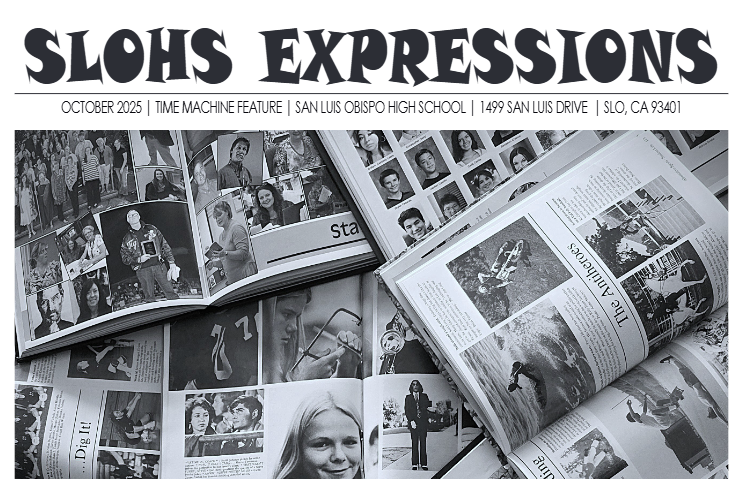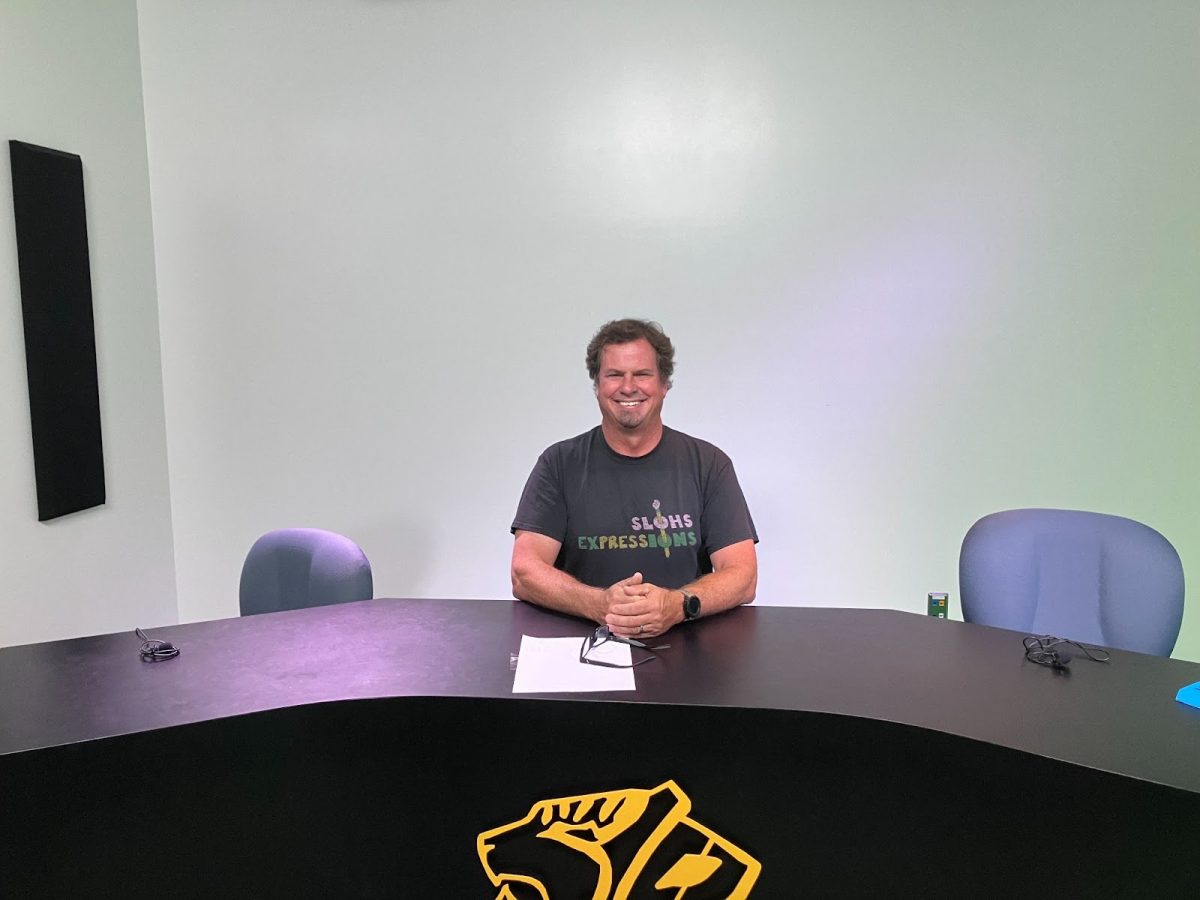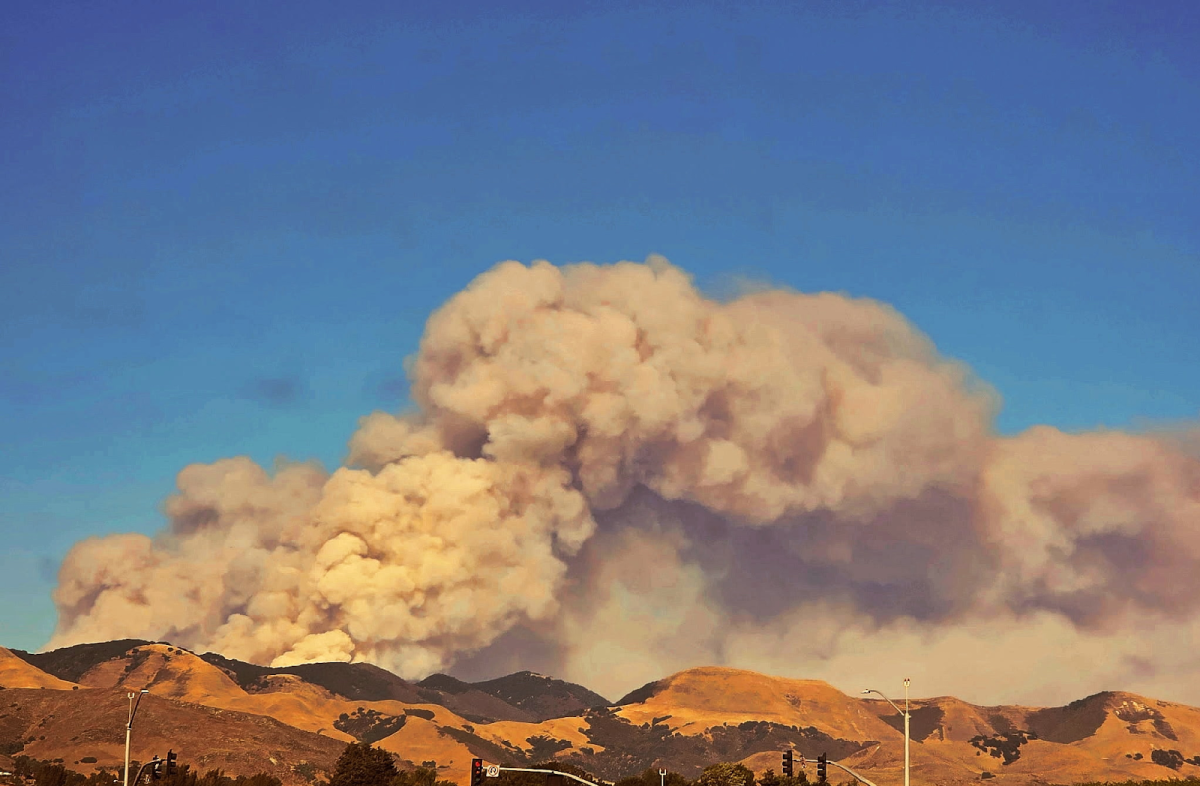The victims of the attack are memorialized at Club Q. Photo collage courtesy of Health and Sports Co-Editor Vyolet Burrus.
When someone belonging to a marginalized community is assaulted, the whole minority is affected, and the attack on Club Q is no exception to this statement. On the eve of Transgender Remembrance Day last November, a queer club in Colorado Springs (Club Q) was attacked by shooter Anderson Aldrich who killed five people and left two dozen more injured. The aftermath of the attack is felt by queer people across the nation, and has effected the queer community at San Luis Obispo High School.
The shooter in question was the suspect of a bomb threat last year, and despite red flag laws that were in place, Aldrich still managed to acquire a weapon. Red flag laws are laws put in place so the court can prevent potentially dangerous people from obtaining firearms. Those who pose a threat can have their firearms temporarily confiscated by law enforcement, but despite Aldrich being a potential bomber last year, Colorado police didn’t revoke his right to bear arms.
Because red flag laws weren’t applied to Aldrich, he was able to acquire a weapon, which led to the tragic attack at Club Q.
“When will we, as a society, recognize that something must be done, that civilians should not have access to firearms? When will we finally say ‘enough’ and recognize how huge of an issue homophobia and transphobia is? It’s so normalized, so tolerated. Like we keep saying ‘it’s okay as long as you don’t hurt anyone,’ [but] homophobia and transphobia has hurt and killed people and those thoughts are never okay. I’m sick of it,” said freshman Charly Elston.
Gun control is a serious problem in the United States, with 45,222 reported people dying from gun related injuries in 2020. 54 percent of these deaths were reported as suicide, but 43 percent of deaths were murders, meaning that around twenty thousand people were shot and killed in 2020. These statistics combined with the fact that LGBTQ+ individuals are four times more likely to experience violent victimization means that the queer community is at great risk of being harmed.
It is also expected that only half the attacks towards LGBTQ+ people are reported, most victims being too afraid to speak out against their attacker. Crimes that are well known are often reported by the media, and individuals belonging to the marginalized group suffer from the attack as well, even though they weren’t directly attacked.
“When a story comes out about a hate crime that has occurred, it really is impactful to an entire community. It isn’t just the single victim or victims of a crime, the fallout from [the crime] is really far reaching,” said English teacher Serena Enzerink.
The attack on Club Q is really significant, the impact devasting the queer community. A similar shooting happened in 2016 at a queer nightclub, Pulse in Orlando, Florida. The shooting left 49 dead and 58 injured, and is still the second largest mass shooting. This attack is still remembered today, and after the attack on Club Q, both attacks are felt greatly within the community.
“As someone who is LGBTQ+, I myself felt this loss even though I didn’t know anyone there. Honestly, it’s a loss for all of us,” said Elston.
The queer community should not have to suffer because of who they love or how they identify; when it comes to human rights, there should never be an opinion or a debate, or even a risk that someone could be killed for something they can’t change. Human rights should never have been, and never should be political. In the past two decades, there have been a great deal of shootings in the United States, leaving entire communities devastated with the losses.
“My heart goes out to the victims’ families and friends. Hopefully, this will be a call to action to end violence against the queer community. Until then, and after that, we will remember these people for who they were,” said Elston.
The victims of the Club Q shooting—Derrick Rump, Daniel Aston, Ashley Paugh, Kelly Loving, and Raymond Vance—should always be remembered, as should all victims of oppression.
Sources: nbcnews.com, washingtonpost.com, npr.org, cbsnews.com, denverpost.com, them.us, williamsinstitute.law.ucla.edu, merriam-webster.com, pewresearch.org, businessinsider.com

